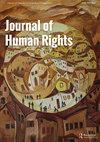‘It was supposed to be fair here’: Human rights and recourse mechanisms in the Dominican Republic’s prison reform process
IF 1.6
2区 社会学
Q3 INTERNATIONAL RELATIONS
引用次数: 2
Abstract
Abstract This article analyzes prisoners’ accounts of human rights violations and protections in two types of prisons in the Dominican Republic: “new” prisons that uphold goals of rights and rehabilitation and “old” prisons that mostly warehouse people. This mixed-methods study finds that prisoners experience significant violence, mostly by other prisoners in old facilities and mostly by corrections staff in new facilities, with different rationales and possible responses. I consider three types of recourse mechanisms: top-down (courts or external commissions), bottom-up (advocacy), and internal institutional (grievance processes and human rights training). I argue that each of these carries constraints, and prisoners perceive official channels to favor the institution. The prevalence of rights violations and the narrow recourse options generate cynicism and frustration among prisoners and their families, which can undermine the legitimacy gained through other important improvements in the reform process.“这里应该是公平的”:多米尼加共和国监狱改革过程中的人权和申诉机制
本文分析了多米尼加共和国两种类型监狱中囚犯对人权侵犯和保护的描述:一种是坚持权利和改造目标的“新”监狱,另一种是主要关押囚犯的“旧”监狱。这项混合方法的研究发现,囚犯遭受严重的暴力行为,主要是由旧设施中的其他囚犯实施的,主要是由新设施中的惩戒人员实施的,理由和可能的反应各不相同。我考虑了三种类型的追索机制:自上而下(法院或外部委员会),自下而上(倡导)和内部机构(申诉程序和人权培训)。我认为,每一种方式都有限制,囚犯认为官方渠道有利于监狱。普遍存在的侵犯权利行为和狭窄的追索选择使囚犯及其家属感到愤世嫉俗和沮丧,这可能破坏通过改革进程中的其他重要改进而获得的合法性。
本文章由计算机程序翻译,如有差异,请以英文原文为准。
求助全文
约1分钟内获得全文
求助全文

 求助内容:
求助内容: 应助结果提醒方式:
应助结果提醒方式:


